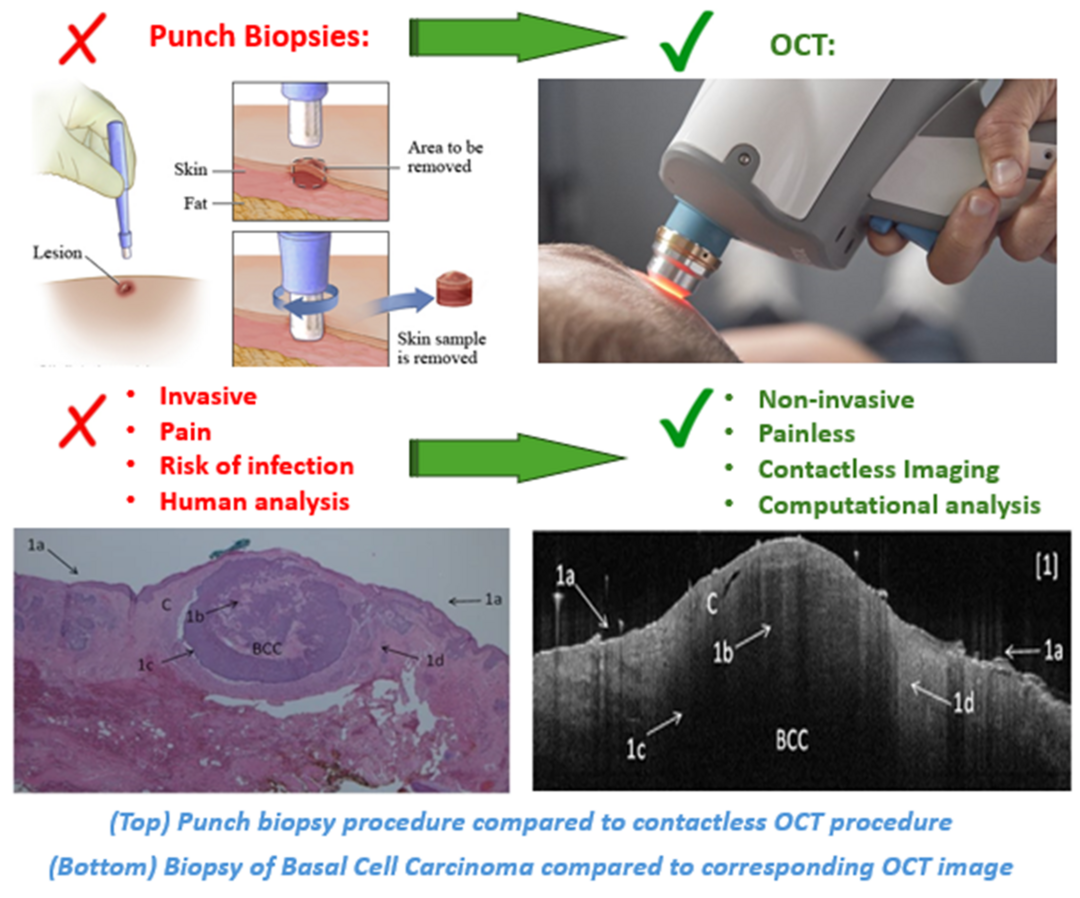Press release
Skin cancer detection device being developed at University wins Silver in UK STEM awards
Published on 11 March 2024
New ways to detect skin cancer tumours without the use of invasive surgeries are being developed at the University of Dundee.

Innovative research led by Dr David Bajek, for the University and NHS Tayside, could substantially reduce the need for biopsy surgeries to detect and treat skin cancers.
Dr Bajek is developing a handheld device containing infrared lasers the size of a penny, which operates using a technique similar to ultrasound.
This device can send light into the body and reflect it back, creating an image of the layers of tissue inside.
The method, known as Optical Coherence Tomography (OCT), is already used by opticians looking into the eye but applying it to skin tissue is a more complex process.
In the near future Dr Bajek’s device could not only be used to diagnose tumours, but also to more closely monitor areas which have previously been treated for cancer.
Dr Bajek, a researcher for the University of Dundee’s School of Medicine and NHS Tayside’s Photobiology Unit at Ninewells Hospital, has received the Silver Award for Physics at STEM for Britain, in recognition of the importance of his work.
He was shortlisted from hundreds of applicants from across the UK to present in front of MPs at Westminster, during which time a panel of prestigious judges from STEM industries selected winners.
“I was surprised when the winners were announced,” he said, “I wasn’t expecting it.
“There’s a lot of remarkable research going on and the judges must have had a difficult job picking the winners because the research comes from a wide variety of important fields in physics.
“I am passionate about what I do and they said that came across when I was talking about my work.

“I’m really lucky that my desk [at Ninewells] is right next to where NHS patients are treated, which inspires me to do everything I can to help them.”
Dr Bajek also researches treatments for skin conditions including photosensitivity, and the award was also in recognition of this area of his work.
Through this he sees some patients whose conditions are so extreme that just two or three minutes outside can cause severe burns, rashes and pain.
Other patients can be sensitive to UV emitted by lightbulbs and so even being inside in some environments can trigger symptoms.
He added: “The thing that comes up time and time again with these patients is the lack of understanding at work or school.
“They may ask to close the blinds or move their desk and they’re met with difficulties or objections. For a photosensitive individual, many aspects of daily life we take for granted, such as walks, picnics or holidays, can prove challenging or even dangerous.
“It’s terribly misunderstood and people don’t realise how life-altering it can be.”
In response to this, Dr Bajek is developing a number of medical and personal devices which will allow patients to monitor their exposure to light, as well as select the best protective clothing and sunscreens to manage their symptoms.
